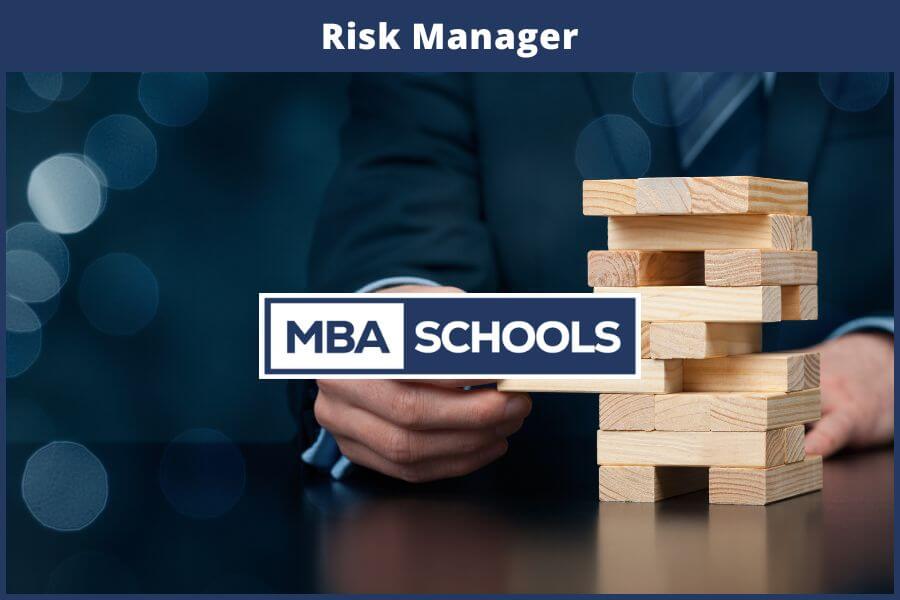How to Become a Risk Manager with an MBA
Risk management is essential for businesses looking to protect assets, comply with regulations, and navigate financial uncertainties ( Financial Times). Risk managers are crucial in identifying, assessing, and mitigating potential risks impacting an organization’s success. However, breaking into this field or advancing to leadership requires strong analytical, financial, and strategic skills.
An MBA can be a game-changer for professionals pursuing a career in risk management. With specialized coursework in finance, risk assessment, and business strategy, an MBA equips professionals with the skills to evaluate risks, develop mitigation plans, and drive long-term business stability.
The U.S. Bureau of Labor Statistics (BLS) projects that financial risk management and compliance careers will continue growing as businesses and financial institutions invest in risk mitigation strategies ( U.S. Bureau of Labor Statistics). If you’re interested in helping organizations navigate uncertainty, an MBA can position you for success.

Table of Contents
What Is a Risk Manager & Why Is an MBA Helpful?
A risk manager is responsible for assessing an organization’s financial, operational, and strategic risks. They develop strategies to minimize potential losses, ensure regulatory compliance, and create contingency plans for crisis management.
Common Responsibilities of a Risk Manager:
- Identifying and evaluating potential risks to a company’s financial health
- Developing risk mitigation and crisis management strategies
- Monitoring market trends and industry regulations
- Implementing compliance programs to meet legal and regulatory standards
- Analyzing financial models to assess risk exposure
- Collaborating with executives to align risk management with business goals
An MBA is particularly valuable for risk managers because it provides financial analysis, strategic decision-making, and regulatory compliance expertise. Specializing in an MBA in Risk Management, MBA in Finance, or MBA in Business Analytics can significantly enhance your qualifications for leadership roles.
Mark Zuckerberg is the co-founder and CEO of Facebook (now Meta), overseeing one of the most influential technology companies in the world. His leadership emphasizes innovation and calculated risk-taking.
Steps to Become a Risk Manager
Becoming a risk manager requires education, experience, and industry knowledge. Here’s how you can position yourself for success:
Step 1: Earn a Bachelor’s Degree
Most risk managers start with a bachelor’s degree in finance, business administration, economics, or a related field. A Bachelor of Business Administration (BBA) focusing on finance or risk analysis provides a strong foundation in business and risk assessment principles.
Step 2: Pursue an MBA Degree
An MBA in Risk Management, MBA in Finance, or MBA in Business Analytics can provide the advanced knowledge needed to excel in this field. These specializations offer expertise in financial risk modeling, investment risk assessment, and corporate governance, preparing graduates for senior risk management roles.
Relevant MBA specializations for risk managers include:
- MBA in Risk Management
- MBA in Finance
- MBA in Business Analytics
- MBA in Strategy (for risk-focused business strategy development)
- MBA in Operations Management (for supply chain and operational risk assessment)
An MBA also provides networking opportunities, exposure to real-world case studies, and risk management simulations, helping professionals gain practical experience in mitigating risks.
Step 3: Develop Your Skills
Risk managers need a blend of financial expertise, analytical skills, and regulatory knowledge to anticipate and manage potential threats. Key skills include:
- Financial modeling and data analysis
- Regulatory compliance and corporate governance
- Crisis management and contingency planning
- Enterprise risk assessment and mitigation strategies
- Strategic decision-making and leadership
Developing these skills through MBA coursework, risk management internships, and case competitions will make you a strong candidate for leadership roles.
Do Risk Managers Need Additional Certifications or Credentials?
While an MBA provides strong foundational knowledge, earning professional certifications can further enhance credibility and career prospects.
Consider:
- Financial Risk Manager (FRM) – A globally recognized certification for professionals specializing in financial risk.
- Chartered Financial Analyst (CFA) – Beneficial for risk managers involved in investment risk analysis.
- Certified Risk Manager (CRM) – Focuses on enterprise risk and insurance risk management.
- Certified Information Systems Risk Manager (CISRM) – Ideal for IT and cybersecurity risk professionals.
Employers often value certifications as they demonstrate technical expertise and commitment to best practices in risk management.
Where Do Risk Managers Work?
Risk managers are in demand across various industries, including:
- Financial institutions and investment firms
- Corporate risk and compliance departments
- Insurance companies
- Government agencies and regulatory bodies
- Energy and manufacturing sectors (for operational risk management)
- Consulting firms specializing in risk advisory services
An MBA with a risk management focus can help professionals secure senior positions in these industries.
How Much Do Risk Managers Earn?
Salaries for risk managers vary based on industry, location, and experience. According to the BLS, the median salary for risk management professionals is $110,000–$150,000 per year, with senior risk officers and chief risk officers (CROs) earning $200,000+.
As companies continue investing in risk management strategies, demand for risk professionals is expected to grow, making this a stable and lucrative career choice.
Learn more about MBA salaries here
Take the Next Step Toward Becoming a Risk Manager
If you want to help businesses navigate financial uncertainty and strategic risks, earning an MBA in Risk Management or Finance can be the key to unlocking senior leadership roles in this growing field.
Take the next step today—explore MBA programs that align with your career goals!
